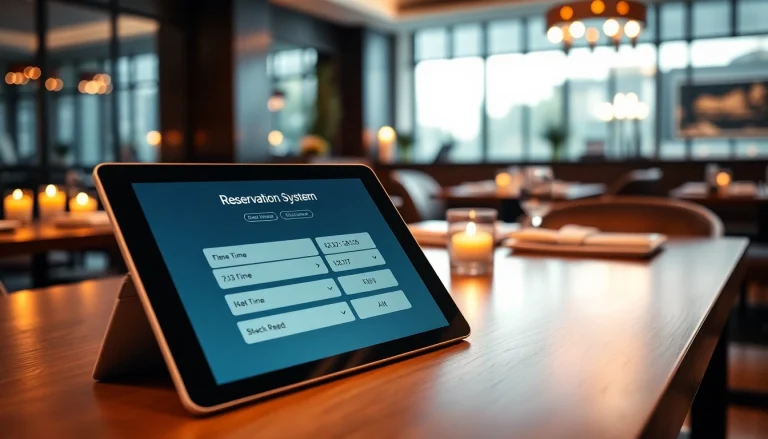
Understanding the Virtual Answer Service
In an increasingly competitive business landscape, effective communication is crucial. One strategic solution that many businesses are now embracing is the Virtual Answer Service. This innovative approach not only streamlines customer engagement but also enhances operational efficiency across various business sectors. In this article, we will explore the intricacies of virtual answer services, their functionality, benefits, and the factors to consider when choosing a provider.
What is a Virtual Answer Service?
A virtual answer service refers to a system that manages incoming calls and messages on behalf of a business. Such services utilize trained professionals or automated systems to handle customer inquiries, take messages, and often perform various administrative tasks. Unlike traditional call centers, virtual answer services can provide a more personalized touch by acting as a direct extension of your business, ensuring that every call is answered professionally, regardless of the time or volume of inquiries.
How Virtual Answer Services Work
Virtual answer services operate through various technologies, typically involving cloud-based communication tools. Here’s a breakdown of how they work:
- Receiving Calls: When a customer calls your business number, the call is routed through the virtual answering service. Depending on the setup, the call can be directed to a live receptionist or an automated system.
- Call Handling: The receptionist or system answers the call, greeting the caller according to the business’s specified guidelines. They can then take messages, answer common questions, schedule appointments, or route the call to the appropriate department.
- Message Forwarding: If a caller cannot be assisted in real-time, the service typically takes detailed messages and forwards them to the relevant staff via email or SMS.
This seamless integration allows businesses to maintain a professional image while ensuring that customer inquiries are promptly addressed.
Key Benefits for Businesses
Implementing a virtual answer service can yield numerous benefits:
- Cost Efficiency: Hiring a full-time receptionist can be expensive. Virtual services offer a more affordable alternative by charging only for the minutes or messages used, thus reducing overhead costs.
- 24/7 Availability: Many virtual answering services provide around-the-clock support, allowing businesses to cater to their customers’ needs at any time, improving customer satisfaction and loyalty.
- Professional Image: With a virtual receptionist, businesses can maintain a polished and professional image, ensuring that every call is answered in a courteous manner, which can help build trust with potential clients.
- Improved Focus: By outsourcing call management, businesses can concentrate on their core operations, enhancing productivity and allowing employees to focus on their primary responsibilities without the distraction of managing incoming calls.
Virtual Answer Service Features to Consider
Live Call Answering
Live call answering is one of the primary features that set virtual answer services apart from automated systems. Trained receptionists provide a personal touch that machines cannot replicate. They can engage in conversations, address specific customer inquiries, and provide guided assistance, creating a more user-friendly experience.
Message Taking and Forwarding
Another essential aspect of virtual answer services is message taking and forwarding capabilities. Businesses benefit from having detailed, accurate messages that can be sent directly to employees via emails, SMS, or even through a dedicated app. This immediacy ensures that no customer inquiry falls through the cracks, allowing timely follow-ups and better customer relationship management.
24/7 Availability
With many customers expecting immediate responses, the ability to offer 24/7 availability can dramatically enhance customer satisfaction. Virtual answer services ensure that regardless of whether it’s a holiday or late at night, your business remains accessible to clients and prospects alike.
Choosing the Right Virtual Answer Service Provider
Identifying Your Business Needs
Every business is unique, and identifying the specific needs your virtual answer service should meet is crucial. Consider factors such as:
- The volume of calls you expect.
- The types of inquiries you typically receive.
- Your budget for outsourcing.
- Any specific operational hours or availability requirements.
By understanding your needs, you can better communicate with potential providers and find one that offers tailored solutions.
Assessing Pricing Models
Pricing for virtual answer services can vary widely depending on the type of service, volume of calls, and additional features offered. Common pricing structures include:
- Pay-per-call: A fee is charged for each call answered.
- Monthly subscription: A flat rate covers a specified number of calls or messages.
- Hybrid models: Combining a monthly fee for basic service with additional fees for extra usage.
Thoroughly reviewing and comparing different pricing options will help find a service that meets both your financial and operational needs.
Comparing Customer Reviews and Testimonials
Before finalizing your decision, take the time to research potential providers. Customer reviews and testimonials are invaluable sources of insight, revealing strengths and weaknesses that may not be evident in marketing materials. Look for feedback on aspects like:
- Responsiveness and reliability.
- The professionalism of the staff.
- The effectiveness of the service in meeting users’ specific needs.
Reputable virtual answering service providers often display customer testimonials on their websites or platforms like Google Reviews or Trustpilot.
Best Practices for Using a Virtual Answer Service
Integrating with Existing Systems
A successful virtual answer service should seamlessly integrate with your existing communication systems. Assess how the answering service can connect with your customer relationship management (CRM) tools, scheduling systems, and email platforms to ensure a cohesive operational experience. You may also want to develop SOPs (Standard Operating Procedures) outlining best practices for call management and messaging to facilitate smooth collaboration.
Training Virtual Receptionists on Your Brand
Effective communication relies heavily on consistency in messaging and brand voice. To achieve this with a virtual answer service:
- Develop comprehensive training materials that outline your brand values, tone, and standard responses to common inquiries.
- Conduct regular training sessions and updates to keep virtual receptionists informed of any changes in products, services, or policies.
- Encourage open communication between your company and the answering service provider to address any questions or discrepancies that arise.
Monitoring Performance Metrics
To ensure your virtual answer service is performing effectively, establish key performance indicators (KPIs) that align with your business goals. Regularly review metrics such as:
- Average response time.
- Customer satisfaction ratings.
- Call abandonment rates.
- Conversion rates from inquiries to sales.
Utilizing these metrics will help you evaluate the efficiency of the service and identify areas for improvement.
Future Trends in Virtual Answer Services
Impact of Artificial Intelligence
The integration of artificial intelligence (AI) in virtual answering services is transforming how businesses handle calls and customer interactions. AI algorithms can analyze caller data to provide personalized responses, assist human receptionists in responding to inquiries, and even manage scheduling tasks autonomously. As technology advances, expect AI to play an increasingly significant role in optimizing business communication.
Customization and Personalization
Customers today expect tailored experiences dictated by their needs and preferences. Advanced virtual answer services are responding by offering customizable solutions. This might include personalized greetings, customized workflows based on business needs, and data-driven insights that help improve service delivery. Harnessing the power of personalization can lead to more satisfied customers and leads converted to sales.
Emerging Technologies in Communication
The future of virtual answering services will likely see the adoption of cutting-edge communication technologies, including:
- Voice Recognition: Enhanced voice recognition systems may allow businesses to automate a greater number of inquiries and eliminate the need for live receptionists during off-peak hours.
- Chatbots and Messaging Apps: Many businesses are now turning to chatbots and instant messaging platforms (like WhatsApp) as initial points of contact, providing additional pathways for customer interaction.
- Data Analytics Tools: Advanced data analytics will enable businesses to garner deeper insights into caller behavior, preferences, and trends, allowing for better decision-making.
As communication technologies evolve, virtual answering services will adapt, presenting businesses with new opportunities to enhance customer engagement and streamline operations.






